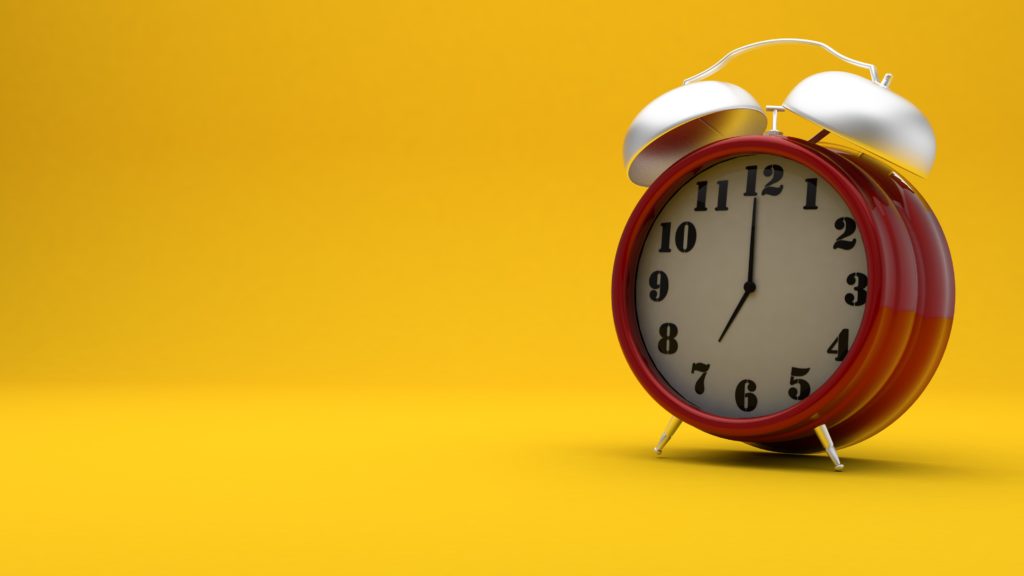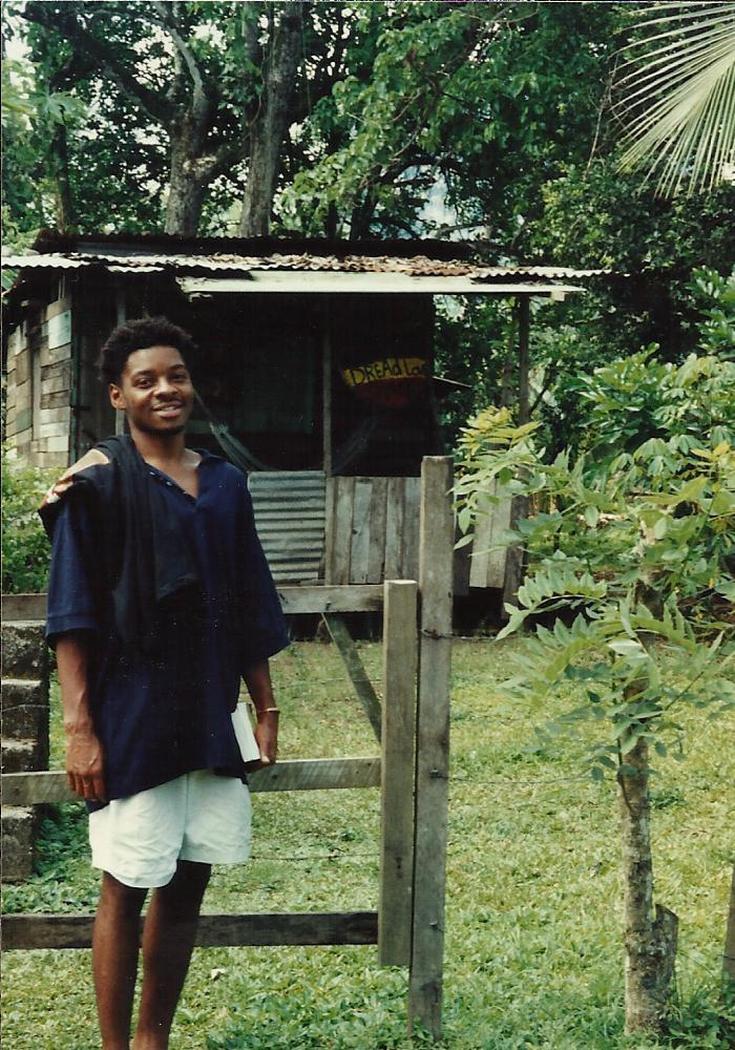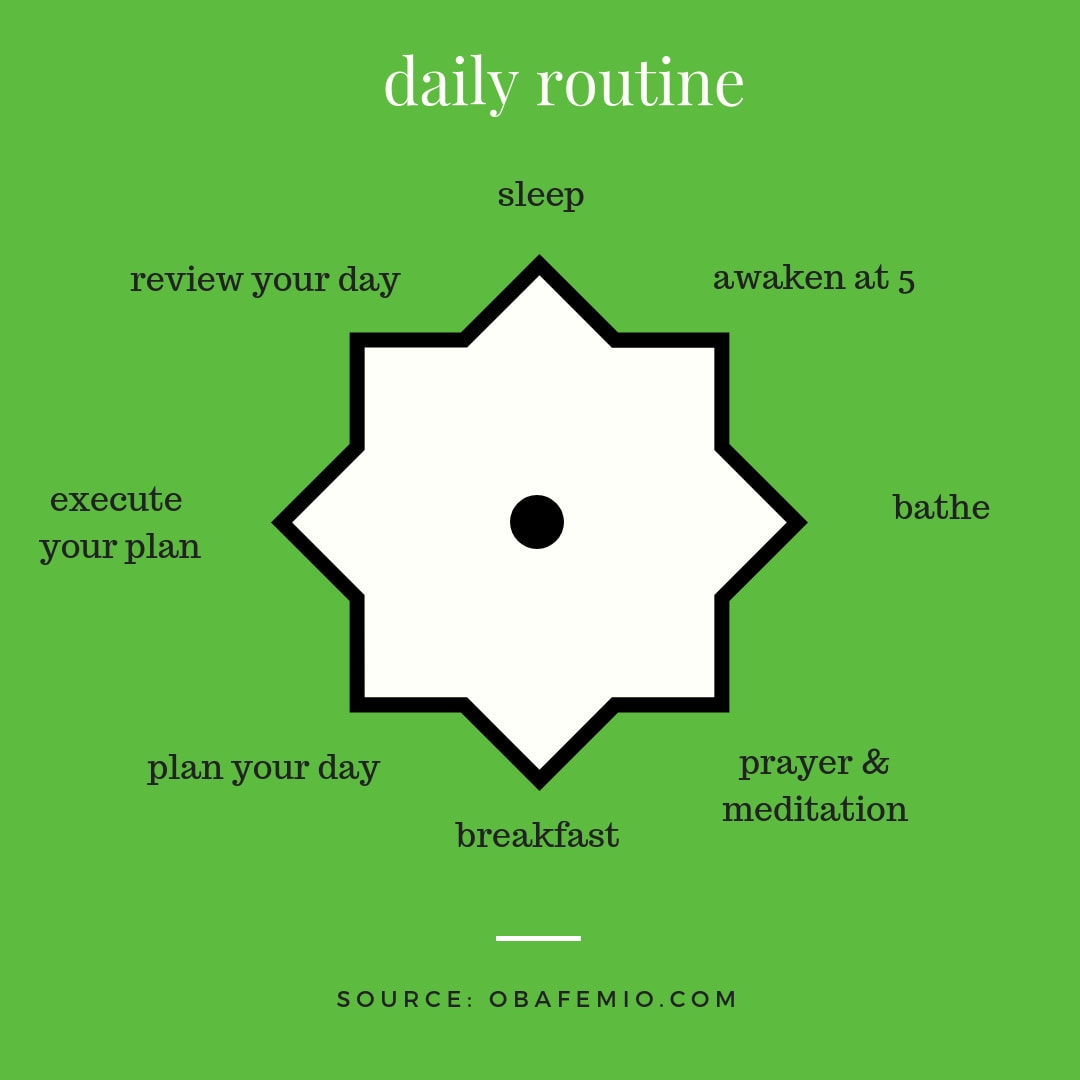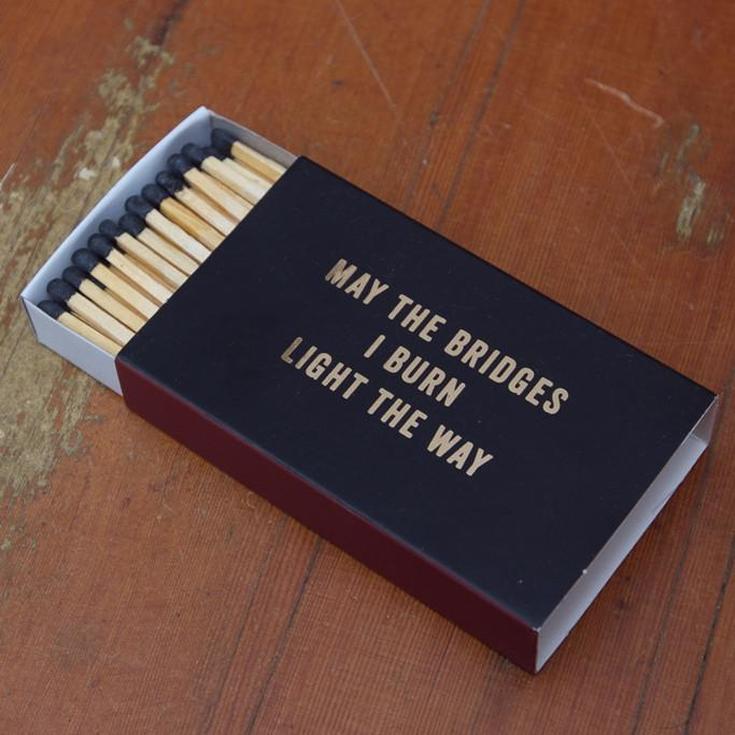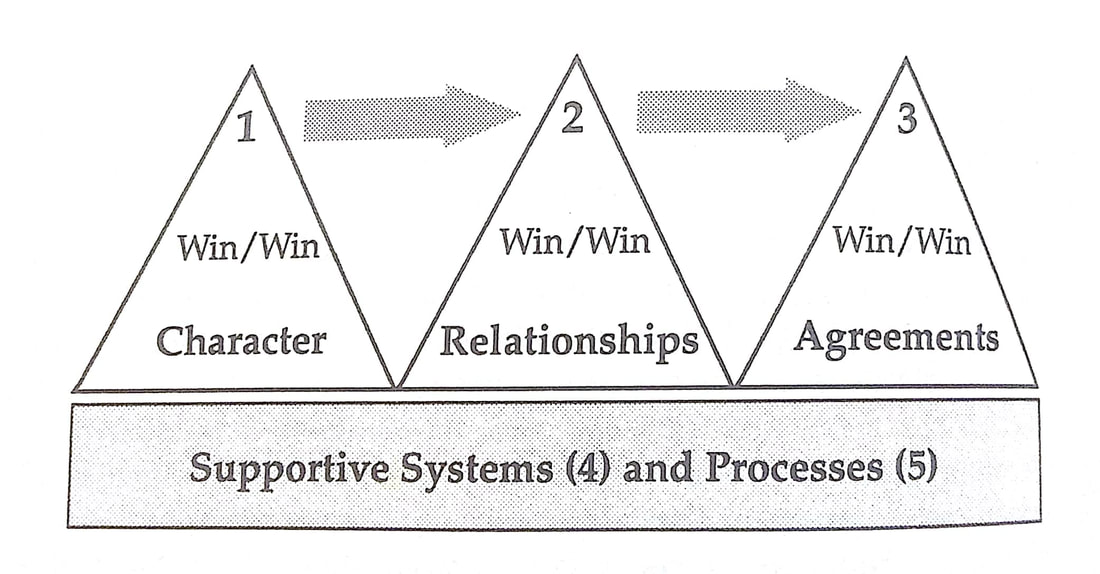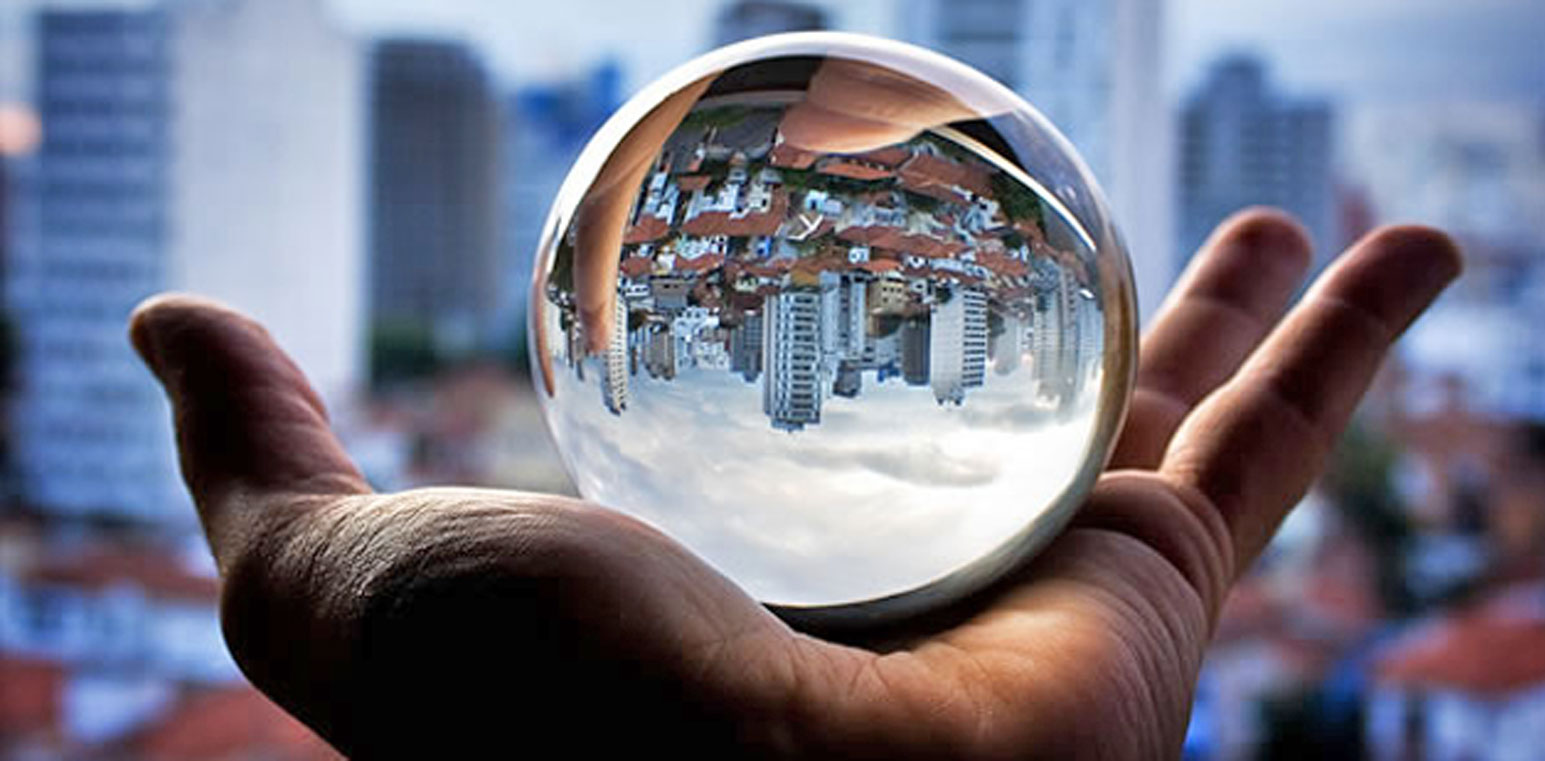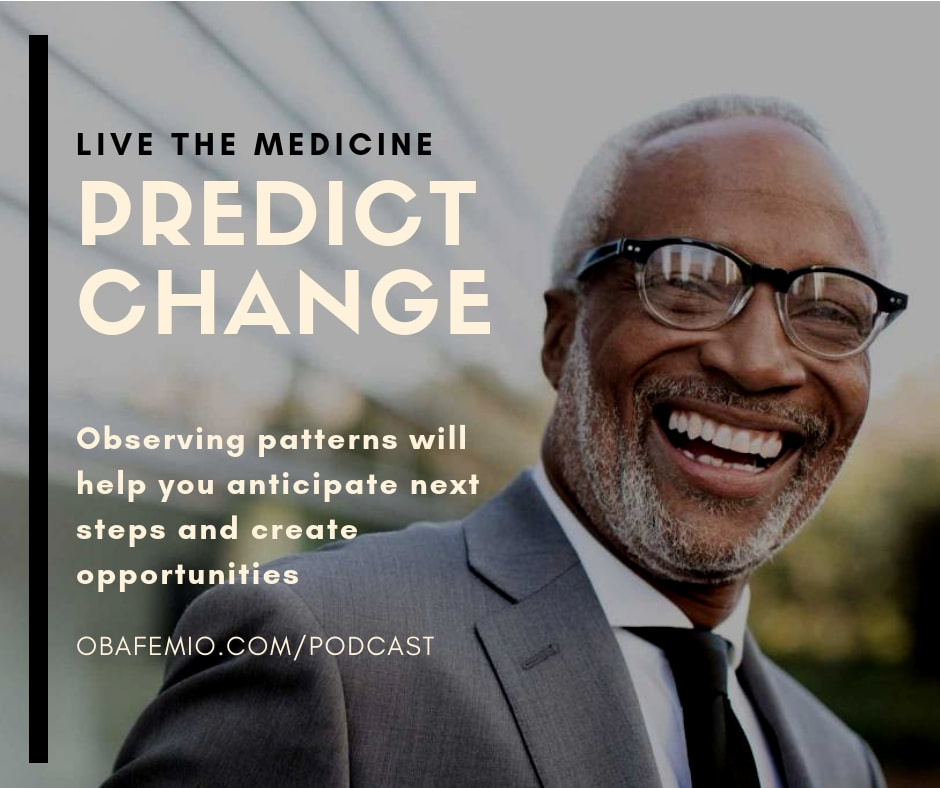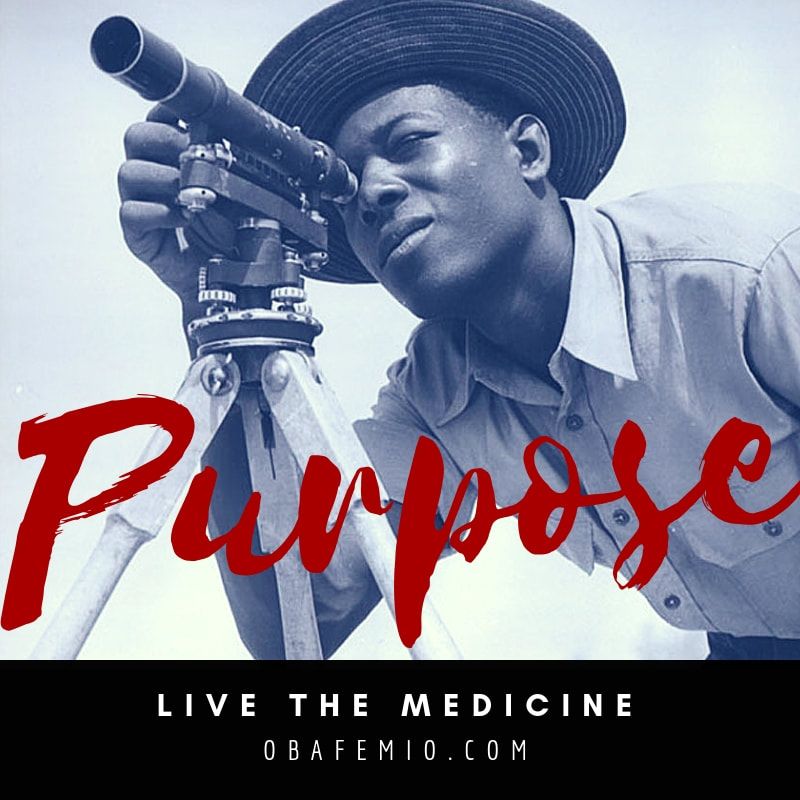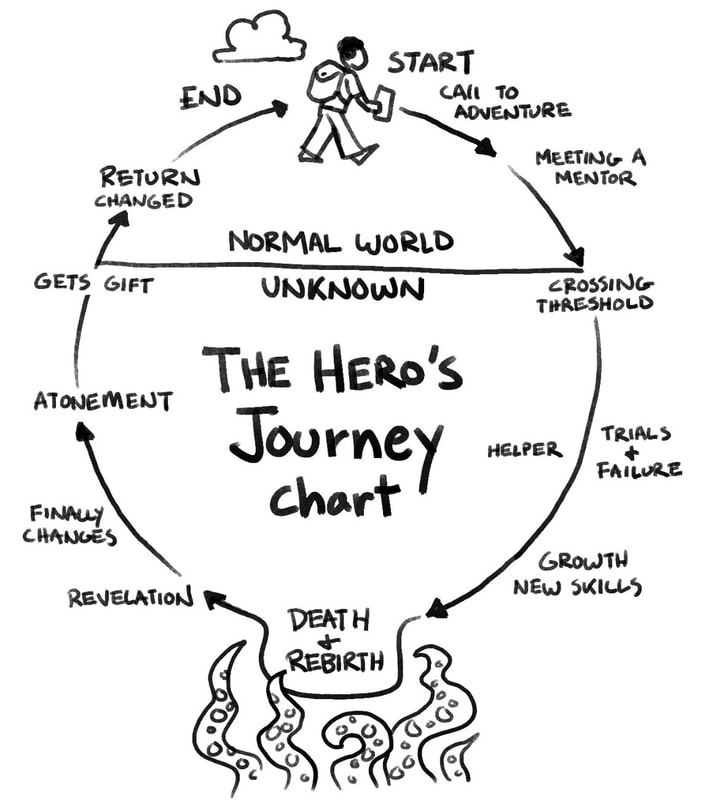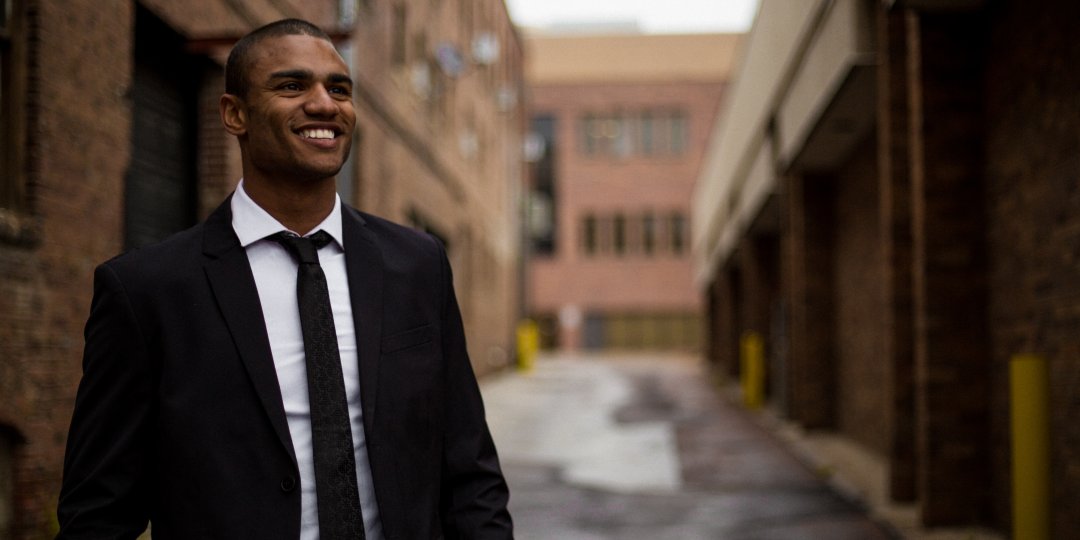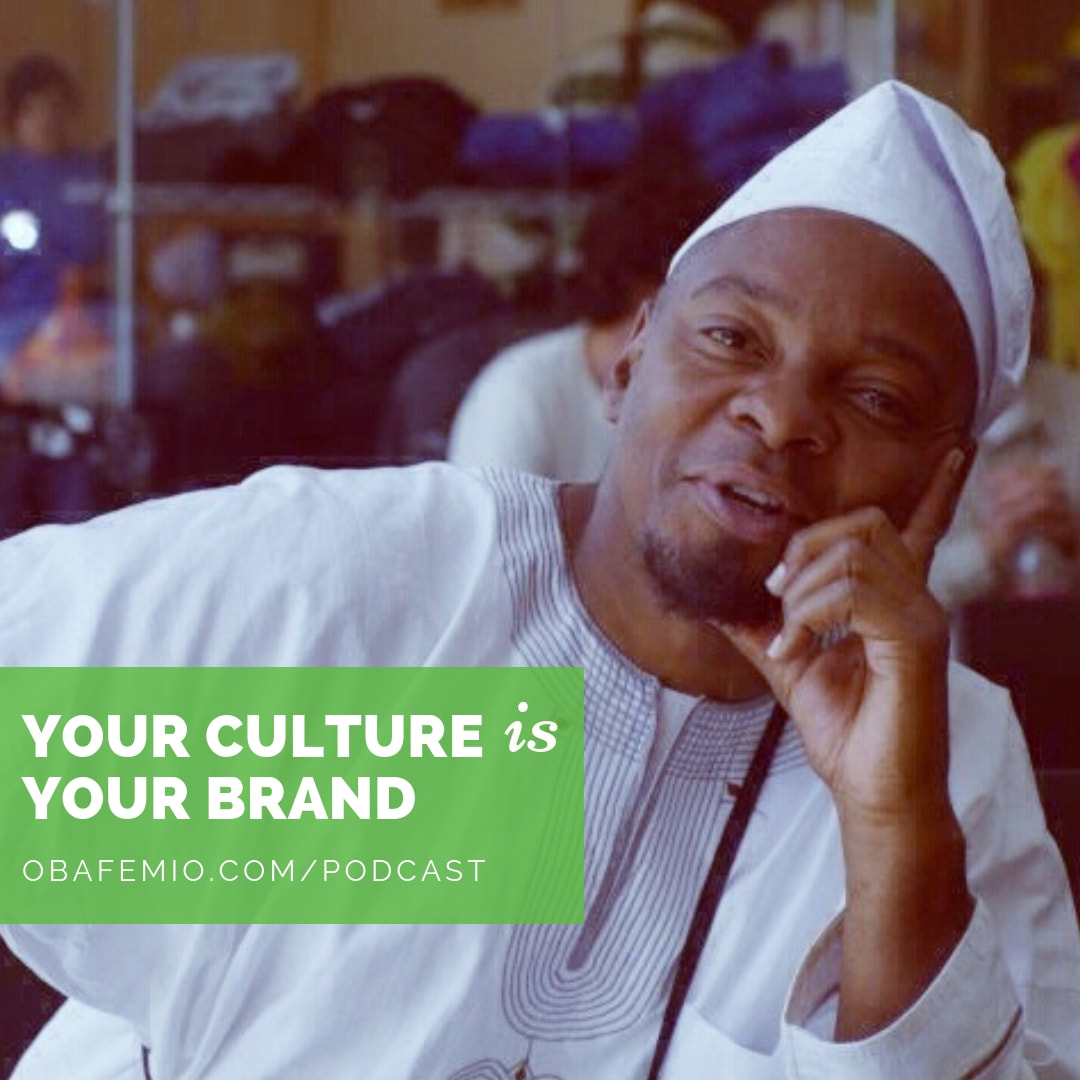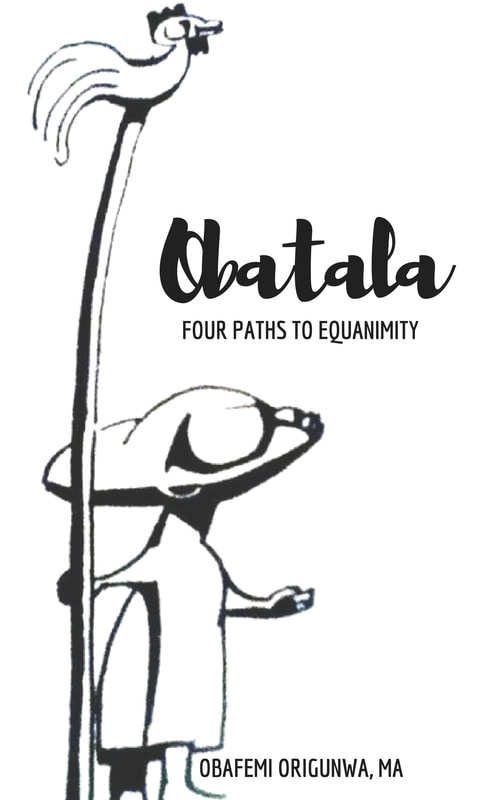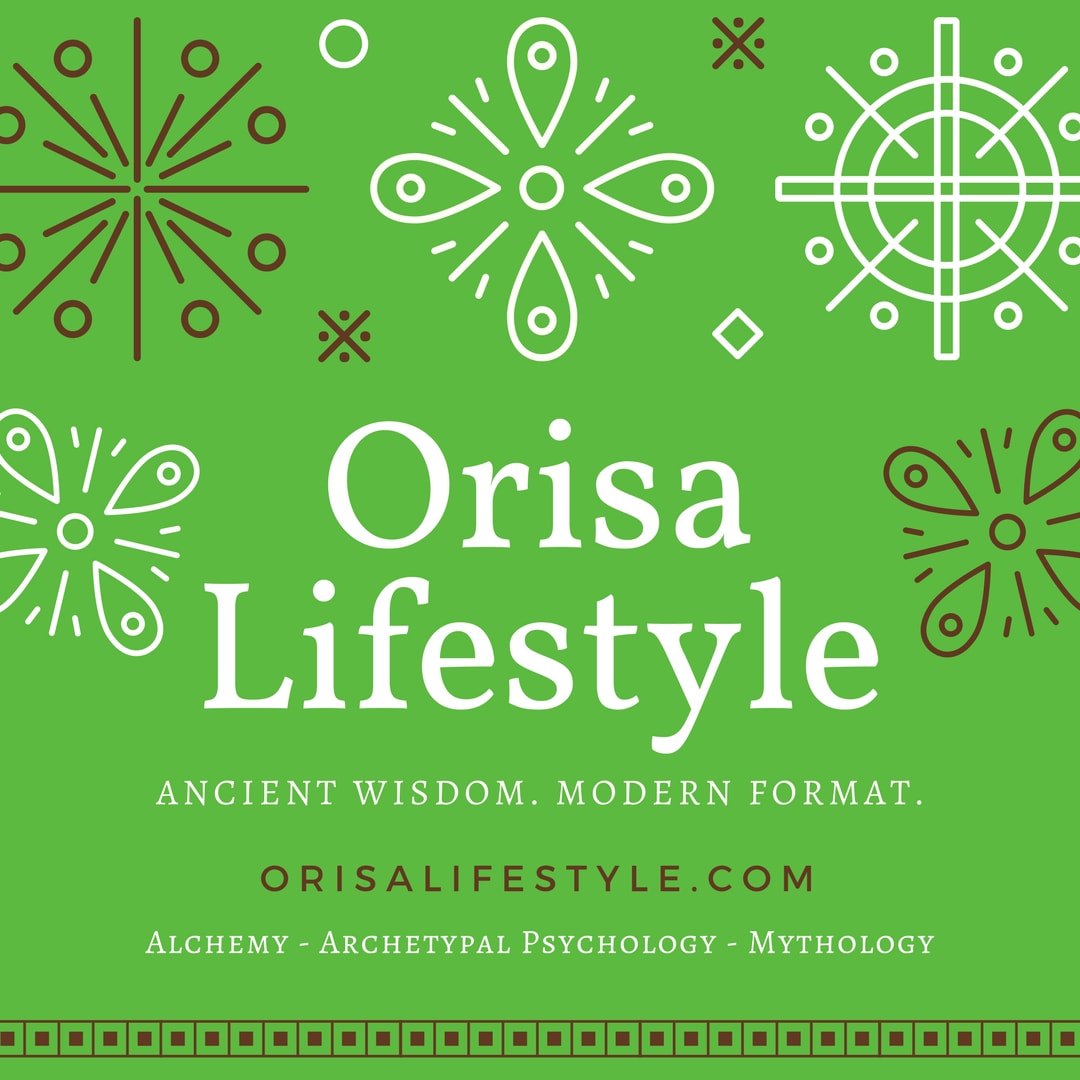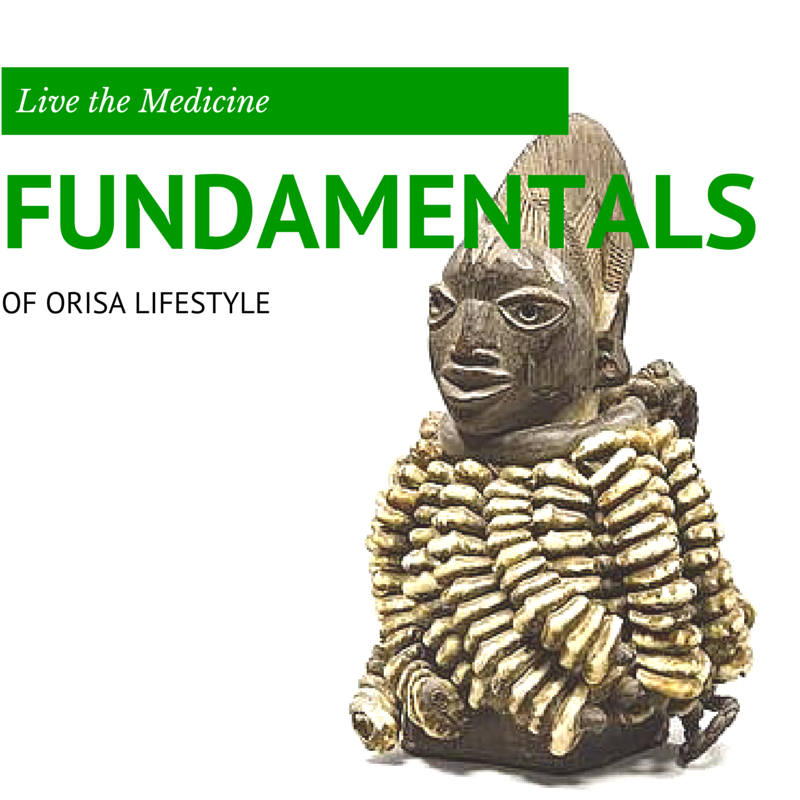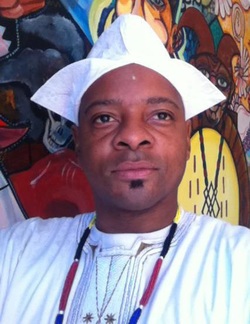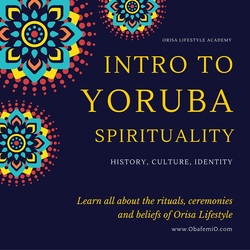What's Your Daily Routine? How to Go From Being Busy to Being Productive Using This Simple Tool12/25/2018
FREEDOM WITHIN A FRAMEWORK A couple of days ago, I was chatting with a friend about my spiritual practice. At one point she remarked, "Oh, so you like order." My first response was, "Yes!" But in my heart I was thinking, "NO!" So, I had to think about it and then retract my "Yes!" In truth, I am not much of a stickler on discipline. I just like the freedom that order creates. For me, the best example of this is jazz. In terms of rhythm, pitch and key, it's extremely precise. But in terms of improvisation, jazz is equally free flowing. This particular balance is what some people call freedom within a framework. The basic idea is that the framework provides consistency and stability. Once you're safe within the framework, you're free to be as creative - and productive - as you can be. PUTTING OUT FIRES IN THE RAT RACE If you're like me, you would like to enjoy the freedom without having to manage the framework. It's cool for a while. But sooner or later, the lack of order will catch up to you. Next thing you know, there is all kinds of chaos and you're suddenly running all over the place trying to put out fires. If you have small children - or have ever had to manage a team of adults - you know how frenzied life can get without a framework: You wake up an hour before work and rush to get ready. You shower at lightning speed, MAYBE gulp down something for breakfast, and run out the door. You get to work, still running and already overwhelmed. To make things interesting, maybe you're also late for a meeting or you're behind on a deadline. You spend all day scrambling to catch up. After work, you eat dinner, sprawl out on the couch, and binge on social media or Netflix. You fall asleep around midnight, wake up the next morning and do the same thing all over again. By Wednesday, you’re burned out and know you won't hit this week's goals. How do you get out of this miserable rut? How do you create the mental space you need to be more productive and creative? Two words: Daily routines. The first time I really learned to appreciate how a daily routine creates a creative framework was in college. I wanted to study abroad in Costa Rica but I had just transferred and my GPA was a little too low. I was carrying a full course load and I worked part time. So my time was extremely limited. My schedule had to be air tight if I was going to do everything I wanted to do. I remember writing my daily routine down and posting it on the wall above my desk. I kept another copy on the cover of my binder. There was no room for deviation. My daily routine paid off! The framework granted me twelve months of tropical freedom and a lifetime of precious memories! Believe me when I say, being productive is just the beginning. The real value of following a daily routine is that it allows you to create the kinds of experiences that will make your life truly meaningful. How do you want to live? Above and beyond what you want to accumulate and what you would like to accomplish, what kinds of experiences do you really want to create for yourself and the people you're destined to serve? Daily routines set the stage for success and fulfillment. They help you achieve more, think clearly, and do what actually matters, instead of run around chasing shiny objects and putting out fires. Daily routines keep you from randomly stumbling through your day and make sure you get the most important things done. All it takes is a bit of discipline, along with a routine that will set you up for real success. Here, I'm going to share my own experience with daily routines so that you can implement your own and start to create more perfect days for yourself and the people you serve. MORNING RITUALS: JUST GET UP!
I invite you to go do a bit of research on morning rituals. You'll find that most high achievers awaken before dawn in order to prepare for the day. My mother - of blessed memory - used to tell me, "Son, you can get more done before 6 am than most people do all day long if you put your mind to it." In those early hours, you can execute the rituals that prepare you for the rest of the day while the rest of the world is asleep. I know, I know... You're not a morning person. Neither am I! To be honest, I don't know many people who are. But you can - you should - train yourself to wake up before dawn for the many benefits an early rise can bring. The most important benefit of rising early is that you are granted more productivity with fewer distractions. You get time to think. You will also enjoy greater creativity because you can work when your mind is fresh, before the daily stress sets in. And, if that weren't enough, researchers in one study found that people with morning rituals reported higher levels of positivity and well-being. [1] As soon as you get up, bathe and get dressed. If you dilly dally, you'll end up falling back to sleep... Just for five minutes... An hour later, you're later than ever! For about 5 years, I have been waking up at 4:30 am. Once I am up, bathed and dressed, I have time to do my prayers and meditation. If you're one of my clients, I have probably prescribed a morning ritual for you to recall your dreams and plan your day. Before dawn is liminal time, when the world is in between stillness and activation. It's the infancy of your day, when your consciousness is closest to raw, unfiltered mental energy. It's the best time to envision, clarify and plan the rest of your day. EVENING RITUALS Your end game is just as important as your opening. By implementing evening rituals into your daily routine, you prepare yourself for the next morning, evaluate your performance that day, and give yourself more incentives to get things done the next day. Before bed, review your day. Start from the evening and work your way backwards, to the beginning. This is an important exercise that I have prescribed to many of my clients with great results. Not only does it increase your memory, but it also helps you come to a better understanding of how things actually unfold. Mike Tyson said, "Everybody has a plan until he gets punched in the mouth." How did you actually respond in real time? Where did you do well? What opportunities did you overlook or mishandle? What prevented you from doing your very best? The answers to these questions will create more opportunities for you to learn from your experience and make the necessary adjustments for improvement going forward. So, the last thing you do before sleeping is to set your intentions. Psychology teaches us that children grow while they sleep. Teachers know that the mind processes information while you sleep as well. So, things you are introduced to on one day can be well-understood the next. What is the one thing you would like to address and improve upon tomorrow? End the day by sending your mind on an errand to retrieve the answers you need. It can seem tough to ritualize your day. It definitely takes intention and discipline. Most of the time, it is much easier to just play it by ear and let things happen as they will. But before you know it, you'll find yourself in a rut. Things will become too random or you'll be trapped in a meaningless rat race, scurrying from work to home to the market to pick up and drop off children at school. The best thing about creating your daily routine is that you get to organize it around the things you WANT to do. You decide what freedom is for you and then you create a schedule that will enable you to enjoy it! So stick with the process. You may find it tedious at first, but you’ll find your days will flow much more smoothly when you've committed to quality morning and evening routines. If you would like support around creating and adjusting your daily routines, let's talk. I would be glad to help you achieve more of what you want. RIDE OR DIE Thousands of years ago, bridge burning was a military strategy used to sever the route between your troops and an advancing enemy. It also meant there was no returning to where you’d just been: You were committed to marching onward, no matter what happened. Burning the ships was a very similar tactic. Legend has it that the practice originated in 1519, when Hernán Cortés set sail to Veracruz, Mexico with his crew. Cortés had defied the orders of his superiors and left Cuba on a mission to see the magical city of Tenochtitlán, which is present day Mexico City. He faced imprisonment or death for defying the governor if he returned to Cuba. So his only alternative was to advance. Those of his men still loyal to the Governor of Cuba conspired to seize a ship and return there, but Cortés moved swiftly and decided to sink his ships. With no possibility of leaving Mexico, Cortés marched into the interior, to confront the Aztecs. Burning our ships - like burning bridges - means there is no turning back to old habits and ways. KNOW YOUR ENEMY There was once a small bird who loved the woodsy northern climates so much he stayed until fall, instead of flying south for the winter. When he finally did leave, it was far too late in the season to be flying and he got caught in a fierce storm somewhere over a farm. The storm coated his wings in ice and he fell to the ground where he thought he would die. As he laid on the ground a cow wandered by and shit on him. At first he was angry and mortified. Then he realized the warm mess was melting the ice on his wings and heating up his frozen body. As he came back to life and struggled to get out a coyote who was passing by saw him and came over to dig him out. “A friend!” the little bird thought. “Let me help you,” the coyote said. “Stop struggling and leave it all to me.” “How fortunate I am to have found a friend,” the bird thought…until the coyote finished digging him out popped him into his mouth and ate him. THE MORAL: Not everyone who shits on you is your enemy and not everyone who helps you is your friend. THE PRISONERS' DILEMMA The prisoner's dilemma is a standard example of game theory that shows why two completely rational individuals might not cooperate, even if it appears that it is in their best interests to do so. Two members of a criminal gang are arrested and imprisoned. Each prisoner is in solitary confinement with no means of communicating with the other. The prosecutors lack sufficient evidence to convict the pair on the principal charge, but they have enough to convict both on a lesser charge. Simultaneously, the prosecutors offer each prisoner a bargain. Each prisoner is given the opportunity either to betray the other by testifying that the other committed the crime, or to cooperate with the other by remaining silent. The offer is:
THE THIRD OPTION In the 7 Habits of Highly Effective People, Stephen Covey describes six paradigms of human interaction. All but one is based upon polarized, dualistic thinking; somebody either wins or loses. Unfortunately, because the overwhelming majority of our people are employees and renters, we never actually win anything. So we end up like street gangs and prison kingpins who are willing to die on every hill without ever gaining the leverage necessary to actually OWN it. In this regard, maintaining any kind of win/lose mentality is painfully self-destructive. Every time you win, you actually lose. It's either we both win or there is no deal. Recently, I saw an exemplary post on a friend's Facebook page. He's from Ghana. According to this post, every family in the church congregation is earning over 100K. Not only that, every high school graduate had been accepted to college. The only way you can get those kinds of outcomes is when the culture is organized around win/win thinking. [1] Milovsky, Nicholas. "The Basics of Game Theory and Associated Games".
"The trouble with weather forecasting is that it's right too often for us to ignore it and wrong too often for us to rely on it." - Patrick Young Let's start with the indisputable fact that all information is subject to change. We cannot predict anything with absolute certainty. But what if you had the ability to really predict the future?!?! Imagine the things you could do, the problems you could avoid. Your confidence would skyrocket from being able to anticipate things before they even happen. Certainly, the power to predict is what has made oracles an indispensable part of every civilization on earth, since the dawn of time. From the Chinese to the Danes to the Aztecs and the Yoruba, you will not find a single civilization that has not traditionally practiced some form of divination. In contemporary business and science circles, people don't openly speak of oracles and divination. Instead, it is more common to talk about "forecasting." As such, statistics, pie charts and graphs have taken the place of bones, shells and crystal balls. But the desired outcome remains unchanged: Get high quality information before your competitors so that you can take the advantage. When I was a corporate consultant, my biggest client was Walmart. It was during that time that I was introduced to some of the ideas of Sam Walton, the founder of the company. One of his quotes really resonated with me and I never forgot it: "You can't just keep doing what works one time, everything around you is changing. To succeed, stay out in front of change." Today, Walmart remains the industry leader, achieving peak performance in its brick and mortar stores and in online sales, as well. [1] FORECASTING HEALS Forecasting does more than create competitive advantage. When done strategically, it empowers and heals people. Stated another way, when people don't know that they are doing and why, it creates anxiety and sets the stage for underperformance. Forecasting clarifies responsibility and priorities and facilitates cooperation. As a healing mechanism, it gets the team thinking about cause and effect—what they can do now to improve future results or avoid some identified risk. In my personal experience, forecasting makes me a better leader and teacher, and it gets everyone on my team involved in helping our group to achieve collective success. [2] Patterns of Prediction and Control In a paper published in the Strategic Entrepreneurship Journal, the researchers show that potential entrepreneurs expressed reluctance to start a new venture in scenarios in which they felt uncertain about the options at their disposal, their ability to achieve their goals and the responses of their competitors (McKelvie et al., 2009). Think about it, most people hesitate when they are unclear about what is going to happen next. Two main strategies to reduce uncertainty stand out in entrepreneurship research— namely prediction-based and control-based strategies. Predictive strategies focus on gathering information to estimate unknowns, whereas control-based strategies aim to shape the environment through proactive behavior. [3] When we consider the Stages of Change theory, however, we glimpse an interesting intersection between prediction and control. The idea here is that change is a developmental process that unfolds in a consistent, five stage pattern:
[RELATED: Listen to the podcast version] THE POWER OF PREDICTION
Prediction enables you to control your future by anticipating risks and opportunities. And if you engage your team (e.g., your family, coworkers, etc) in the process, you’ll find that the people around you are more likely to pay attention to their performance in ways they never did before. Now, for me personally, this is something that is really pertinent to my work in the classroom, as well as within the temple. So, what I am going to share reflects what I have learned until to date, as well as adjustments I will make going forward. Here’s how to optimize prediction:
Based on these theories and practices, I have created a model to measure the effectiveness of communications in moving individuals towards behavior change through prediction. The model tracks individual progression from awareness to action. Depending upon the nature of the prediction and its subsequent campaign, the model seeks to frame up your personal and collective goals within a specified period of time. Are you ready to learn more about how you can use prediction and forecasting to support your personal and group planning? JUST DO YOU The all-consuming-self has an endless appetite for attention. If that weren't bad enough, the culture seems to validate and reinforce the idea that your self satisfaction is all that really matters. As a result, just about anything you do in the name of "doing you" is justified in the court of public opinion. You can find an almost endless supply of books, blogs, and websites that will help you "do you" better than ever. Doing you is synonymous with happiness. Over the years, however, experience has shown me a very big difference between two kinds of happiness;
Happiness that results from gratification usually focuses on events, products and experiences that feel positive in the moment. The downside of "do you" happiness is that unless it is tied to something sustainable, you eventually end up feeling worse than when you started. Stated differently, the world will certainly celebrate your impulsive spending, excessive sexual indulgences, unhealthy food choices, or substance abuse in the name of "doing you." And while plenty of businesses profit from making it convenient to "do you," nobody bears the consequences of having done so... but you. In the end, you'll come away with some cool stuff and a handful of good stories. Unfortunately, these experiences are balanced out by some intense feelings of emptiness and regret. The truth is, the majority the people I have worked with over the years really have more than they need to live comfortably. In spite of the fact that they're doing well financially, they are also struggling daily to connect with a deeper sense of meaning. So let's take a look at how can you find meaning in a world that is flooded with messages that constantly reinforce the idea that every need can be fulfilled through purchasing something. This is where we turn away from instant gratification and materialism and focus upon happiness that results from a sense of purpose. Ironically, purpose-driven experiences might not be purely pleasurable, but they do increase your sense of connectedness to deeper values. Consider volunteerism, for example. Studies have shown that volunteering helps people who donate their time feel more socially connected, thus warding off loneliness and depression. [1] Altruism in many forms, from donating money to a worthy cause to random acts of kindness, have been shown to light up the same reward centers of the brain associated with food and sex. Helping others is a natural high our brains are wired for. [2] Again, these activities may not always be easy or convenient, but they will intensify your reasons for living. PURPOSE IS PERSONAL By now, you might be getting the message that self indulgence is bad and service to others is good. Beyond good and bad, however, I want you to pick up on what will work best for you over time and under a variety of circumstances. That is, your purpose is what some people call your True North. "Are you all you want to be? Do you have a path to fulfilling your dreams? You can do so just by being yourself, and developing the gifts already inside you. Can you recall a time when you felt intensely alive? A moment when you could say with confidence, “This is the real me?” That is when you are in sync with your True North.[3] There are many reasons why you may not know your purpose (i.e., True North). Sometimes it's because the world's problems seem too big. Other times, you might think you're just too small. But if you want to change all that and find your life purpose, follow these steps:
I encourage you to pause momentarily and synthesize the main ideas we have covered so far, from happiness to service to innovation. Together, they set the stage for you to recall and practice your purpose at will. As you recall your responses to the questions I posed above, juxtaposed against the image of the Hero's Journey, you will likely see some overlap. The hero - like Harry Potter, Bilbo Baggins, or Luke Skywalker - represents the quest to discover and master your identity, which is synonymous with destiny. The process of becoming a hero then, is what we call Ijo L'aiye, the journey of life. Each segment of the journey is an invitation to show up more fully and demonstrate your ability to focus relentlessly and perform effortlessly. The ways in which you answer those questions will become the laws of your personal priesthood. Your life story is your sacred text in this regard. Every day, you contribute to another chapter.
Obafemi Origunwa, MA | ObafemiO.com #OrisaLifestyle #PersonalPriesthood #LivetheMedicine #TiwanTiwa YOU DON'T WANT TO BE THE LEADER
Most people don't want to be recognized as the authority. Some people reject the idea so strongly that they would rather deny the necessity for any type of leadership than to assume responsibility for the actions of others. No matter strongly you might feel about your own personal need for authority, the fact is, there are people around you who definitely need direction. Things need to be done in order for you to accomplish and maintain progress, both personally and as a group. I get a glimpse of how important this is every day, as I teach Spanish to elementary school students. The inescapable reality is, the only thing they really want to do is play. Furthermore, the younger they are, the more they want to play. But my mission is to teach them Spanish and I only have about three hours a week for classroom instruction. Since I am the only person in the room who speaks Spanish, it is clearly up to me "call the play." So, we clap, chant, sing, read and write. Sometimes, we even draw! Bit by bit, they learn Spanish. You may not be a classroom teacher but you get the gist and can come to the same conclusion within the context of your own life. It doesn't really matter if you're an entrepreneur, a professional, a parent or a priestess; it is a bit obvious that you need to establish expert authority in your circle of greatest influence. That is, people need to know that you're going to assume responsibility for maintaining your area of expertise in a way that benefits the group. As you are able to do so, you will also provide a powerful platform on which to build all other development initiatives. For example, as a Spanish teacher, I could also organize study abroad experiences or publish supplemental learning materials. Because establishing authority is a process, you are liable to experience many developmental phases. At every phase, however, you can expect to have some kind of trouble positioning yourself and developing leadership influence. What follows is a set of key skill sets and strategies to consider in regards to establishing authority in your circles of greatest influence:
Technology, Organization & Planning, Empowerment and Flexibility are all parts of one system, YOUR system. You'll first have to grapple with building a system that works for you. Gradually, you'll increase your authority as you learn to build systems. Eventually, as you optimize it, your system will enable you to get things done, AND have more time to focus on the things you do best. So, what can you do to position yourself as an authority? Start by evaluating your true competitive advantage and how you solve important problems for the people you serve. Once you get clear about that, you can map out a system that supports your natural gifts and talents. If you refuse to create a system and establish your authority, the people within your circle of influence will suffer. Marianne Williamson said it perfectly: "Our deepest fear is not that we are inadequate. Our deepest fear is that we are powerful beyond measure. It is our light, not our darkness that most frightens us. We ask ourselves, Who am I to be brilliant, gorgeous, talented, fabulous? Actually, who are you not to be? You are a child of God. Your playing small does not serve the world. There is nothing enlightened about shrinking so that other people won't feel insecure around you. We are all meant to shine, as children do. We were born to make manifest the glory of God that is within us. It's not just in some of us; it's in everyone. And as we let our own light shine, we unconsciously give other people permission to do the same. As we are liberated from our own fear, our presence automatically liberates others." Over time and with consistent effort, momentum will build, and you will start to catalog a collection of useful content, that might include assets like videos, blog posts, podcast or radio show interviews, or even your own published book. Do you need help establishing your authority? Let me show you how! FIRST THINGS FIRST
We tend to minimize the importance of personality. When we say that somebody has a good personality, we usually mean they're likable. But there's a lot more to it than that. For example, when a leader is looking to expand his team, his prime objectives are to establish three things:
Your personality has a significant impact on all three of these objectives. because of that fact, leaders make use of a variety of formal and informal personality assessments in order to observe how you handle relevant activities, such as solving problems, managing others, working in teams, complying with rules and regulations, coping with stress and more. So, the first thing you need to understand is that your personality is directly tied to performance, not popularity. PERSONALITY INDICATORS There are many elements of personality, and each one offers its own unique insight into how you can make a more meaningful contribution to your life and the lives of those you're destined to serve. Focus, self-motivation, diligence and honesty are not only virtues, but also personality traits. Some personality traits are natural. Others must be practiced. Either way, your personality traits have considerable impact on how you show up in the world and what you're best suited to do. I remember when I was learning to play the trumpet. Because I loved the instrument dearly, I was overjoyed to meet an Afro Cuban musician who had played with the National Symphony. Soon after we met, I asked him to show me some drills for trumpet mastery. He shared three exercises with me right away. When I happened to run into him a couple of weeks later, he asked how I was doing with the drills he had given me. As soon as I told him I had not done them for a few days, he flatly told me, "The trumpet is a very demanding lover. She will not accept inconsistency. You'll never be a serious trumpet player if you cannot master those drills. Maybe you'll be good at something else... But not the trumpet." The trumpet suited my taste in music, but not my personality type. That is, I loved the sound, but I didn't have the methodical discipline to master the trumpet. Here, it's worth repeating that the most important aspect of personality is the way it is directly tied to performance. In order for you to achieve and sustain excellence, your personality must be closely aligned with the tasks most strongly associated with your craft. Many years after my trumpet-playing, I was introduced to personality assessment instruments, commonly referred to as "personality tests." I found the Enneagram very interesting but Myers-Briggs has always been my favorite. The basis of Myers-Briggs is that every individual has a primary mode of operation within four categories:
Within each of these categories, we "prefer" to be either:
My personality type is ENFJ, who are described as "natural-born leaders, full of passion and charisma. Forming around two percent of the population, they are oftentimes our politicians, our coaches and our teachers, reaching out and inspiring others to achieve and to do good in the world. With a natural confidence that begets influence, ENFJs take a great deal of pride and joy in guiding others to work together to improve themselves and their community..." [2] One thing that I enjoy about personality assessment is that it is not geared towards abstract navel-gazing. When you really explore the details of your personality type, you will gain valuable insights into optimal fields of study, professional careers, strengths and weaknesses. Most importantly, personality assessments tend to be outcome driven. They provide actionable behaviors and habits related to performance. For example, as subordinates, ENFJ's tend to be quick learners and excellent multitaskers. People with the ENFJ personality type are able to take on multiple responsibilities with competence and good cheer. As colleagues, ENFJs’ desire to assist and cooperate is even more evident as they draw their coworkers into teams where everyone can feel comfortable expressing their opinions and suggestions, working together to develop win-win situations that get the job done. While perfectly capable as subordinates and colleagues, ENFJs’ true calling, where their capacity for insightful and inspiring communication and sensitivity to the needs of others really shows, is in managing teams. As managers, ENFJs combine their skill in recognizing individual motivations with their natural charisma to not only push their teams and projects forward, but to make their teams want to push forward. [3] WHO ARE YOU... REALLY? Identity is complex and multifaceted. Ancestry, culture, nationality, gender and class are just a few of the factors that determine who you are. In the Yoruba tradition of West Africa, there are elaborate rituals and ceremonies that help people answer the eternal question, Who am I? As a result, more and more people are gravitating towards knowing more about the extensive pantheon of Orisa, as well as the almost inexhaustible information found in the sacred text, called the Holy Odu. The prevailing idea is that you will be more successful, happier and more comfortable once you have found yourself. And while I wholeheartedly accept that notion, I am also certain that knowing who you are is only the beginning. Long term success also requires that you know how to show up; how to express yourself. That is, you must know how to demonstrate your natural gifts and talents in ways that complement your environment and get the job done. Getting the job done requires a balanced assessment of the weaknesses, as well as the strengths of your personality type. Let's take another look at ENFJ. ENFJ Weaknesses:
ENFJ Strengths:
CONCLUSION If there is one thing that makes the difference between average and exceptional performance, it is self awareness. Too often, people limit their self assessment to their likes and dislikes. Authentic self awareness, however, demands that you discover why you like certain activities and dislike others. It means learning to live with yourself - even those aspects of your personality that you would rather not acknowledge. Even more valuable than awareness is the way in which it enables a clear understanding of how to apply your personality traits strategically so that you can create specific outcomes. Without the ability to manifest your vision of life, according to your personality traits, you will remain incomplete and unfulfilled. There can be no maturity without full self expression. Ultimately, as you reconcile the contradictions of your personality in the full expression of your natural gifts and talents, you will achieve greater levels of success personally and professionally. Check out my podcast episode on personality: Your Culture IS Your Brand Obafemi Origunwa, MA | ObafemiO.com #PersonalPriesthood #LiveTheMedicine |
Live the MedicineObafemi Origunwa, MAThought leader, Ifa priest and author of four definitive books, Obafemi Origunwa inspires metamorphosis through living the medicine that will heal your life and heal the lives of the people you're destined to serve. 
Raise Awareness

Internalize Principles

Embody Truth
|
